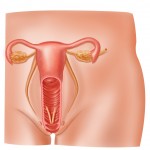
But in most cases, doctors will recommend the least invasive approaches first.
Any surgical procedure carries inherent risks. And in the case of urinary incontinence, at least one surgical treatment allegedly causes far greater problems than the condition it’s meant to treat.
Transvaginal mesh implants, marketed as a treatment for urinary incontinence and pelvic organ prolapse, have generated widespread lawsuits over their tendency to fail and cause health problems. The most common reported problem is the vaginal mesh eroding and sticking through the walls of the bladder and vagina, causing severe pain.
In the first of about 11,000 lawsuits against vaginal mesh manufacturers to go to trial, a New Jersey jury recently awarded $11.1 million to a woman who received a mesh implant manufactured by Johnson & Johnson’s Ethicon subsidiary.
The Mayo Clinic says some types of urinary incontinence may be treatable with behavioral techniques. They may include:
Bladder training. This technique may involve learning to delay urination after you get the urge to go, by learning to delay urination in increasingly lengthy increments. Bladder training may also involve urinating, then waiting a few minutes and trying again, to help you learn to empty your bladder more completely and avoid overflow incontinence.
Scheduled toilet trips. This means going to the bathroom according to a specific schedule rather than waiting for the need to go.
Fluid and diet management. In some cases, you can regain control of your bladder by simply changing your daily habits. This may involve cutting back on or eliminating alcohol, caffeine or acidic foods; reducing liquid consumption; losing weight or increasing physical activity.
If you have a vaginal mesh implant, you should consult with a doctor if you have any ongoing symptoms or health concerns. If you have significant injuries, you should also consult with a mesh lawyer to discuss your legal rights.
See more information about urinary incontinence here:
https://www.mayoclinic.com/health/urinary-incontinence/DS00404
